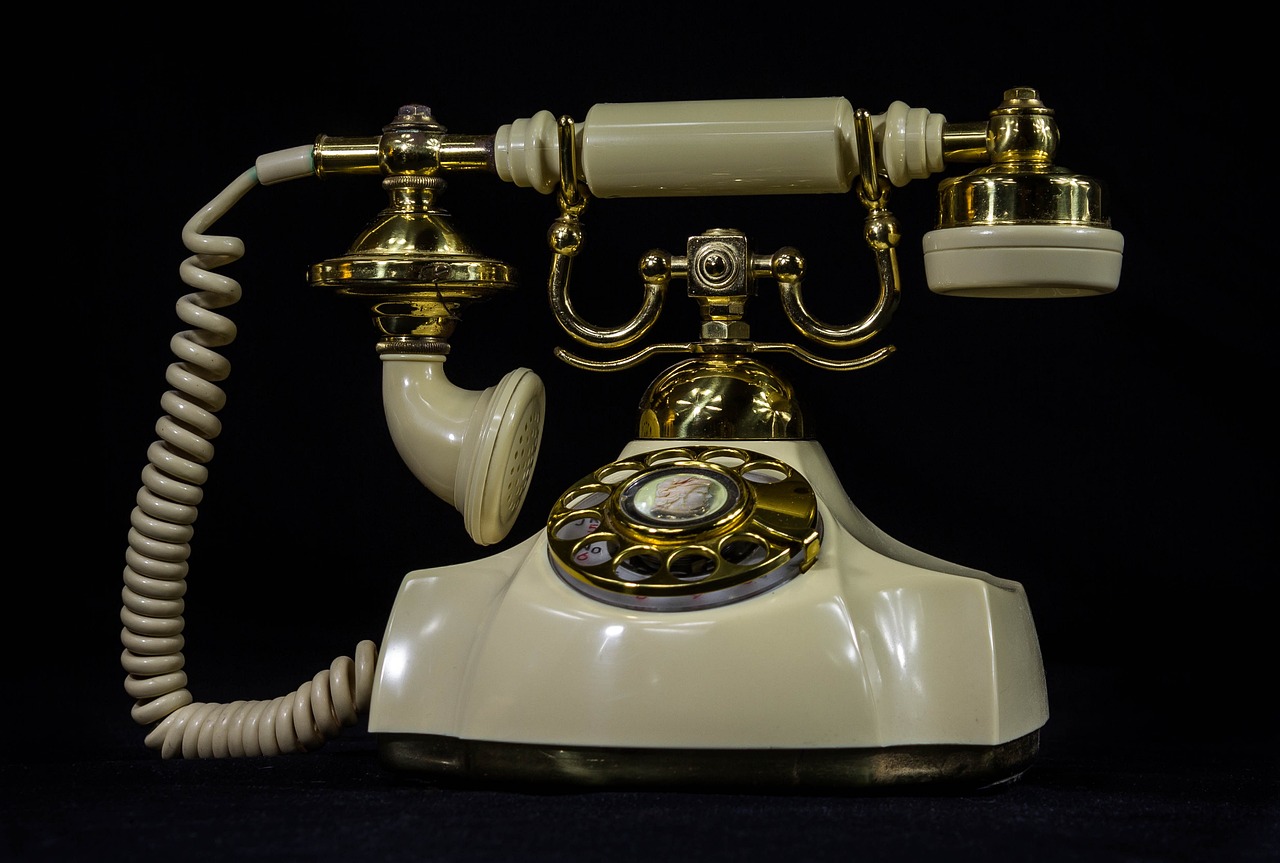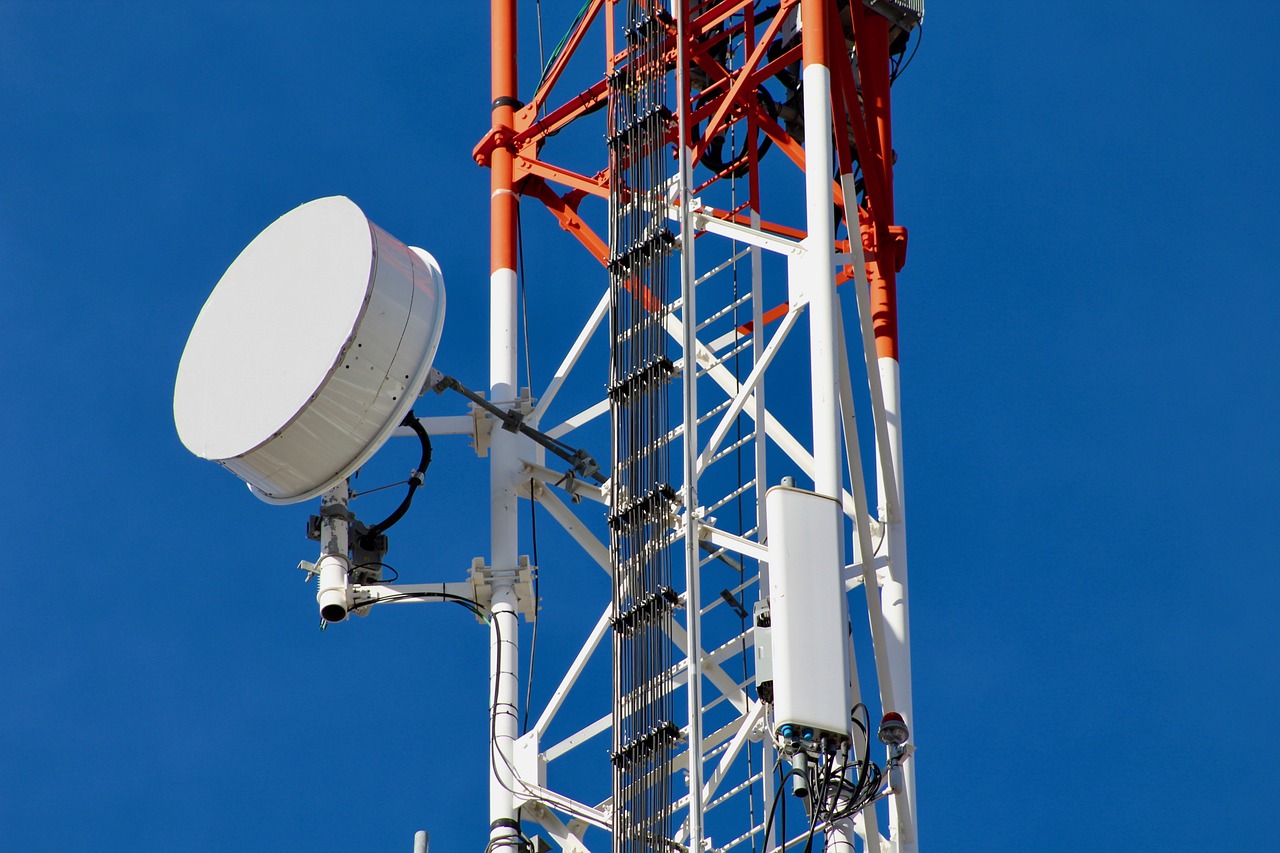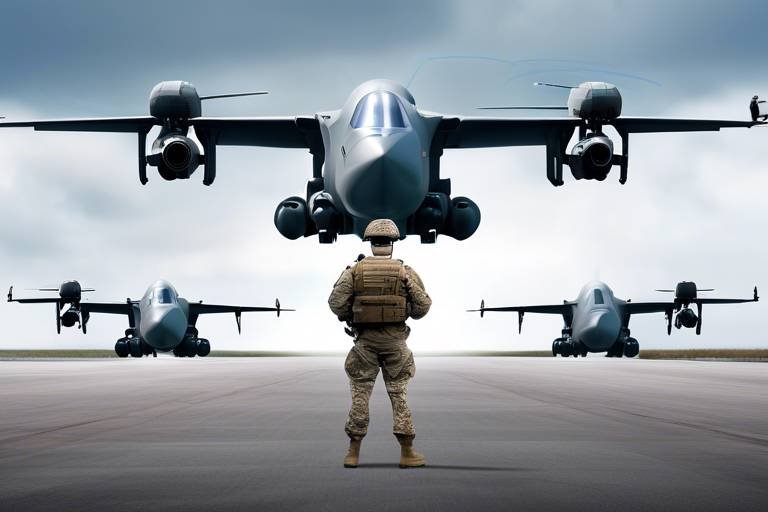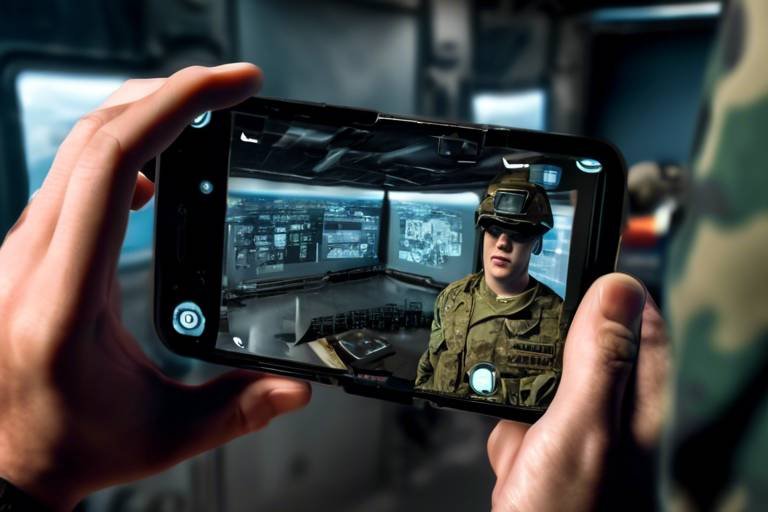Quantum Communication Systems - Securing Military Networks
In an age where information is power, securing military communications has never been more critical. The advent of quantum communication systems promises to revolutionize how sensitive data is transmitted and protected. By leveraging the principles of quantum mechanics, these systems offer a level of security that traditional methods simply can't match. Imagine a world where military networks are impervious to eavesdropping and cyber threats—this is the potential that quantum communication holds.
As we dive deeper into this fascinating topic, we will explore not only the fundamental concepts that make quantum communication possible but also its myriad benefits for military applications. From enhanced security measures to the challenges that lie ahead, we will paint a comprehensive picture of how quantum technology is set to reshape defense strategies globally.
At its core, quantum communication utilizes the unique properties of quantum mechanics to transmit information securely. Unlike classical communication systems, which rely on electromagnetic waves, quantum communication employs quantum bits, or qubits. These qubits can exist in multiple states simultaneously, thanks to a phenomenon known as superposition. This allows for the creation of secure communication channels that are fundamentally different from anything we've seen before.
Another critical aspect of quantum communication is entanglement, where pairs of qubits become interconnected in such a way that the state of one instantly influences the state of another, regardless of the distance separating them. This property not only enhances security but also enables the instantaneous transfer of information, making it an exciting frontier for military applications.
The integration of quantum communication into military networks brings a plethora of advantages that can enhance operational effectiveness. One of the most significant benefits is enhanced security. With traditional communication systems, the risk of interception and data breaches is ever-present. However, quantum communication systems utilize quantum key distribution (QKD), which ensures that any attempt to eavesdrop on the communication can be detected immediately. This capability transforms military communication into a fortress of security.
In the realm of military operations, the stakes are incredibly high. The ability to ensure that communications remain confidential and untouchable is paramount. Quantum key distribution (QKD) is a game-changer in this regard. By employing the principles of quantum mechanics, QKD allows two parties to generate a shared, secret random key, which can be used to encrypt their communication. If an eavesdropper attempts to intercept this key, the very act of measuring the quantum state will alter it, alerting the communicating parties to the breach.
To understand QKD better, consider it as a highly sophisticated lock and key mechanism. The lock is represented by the quantum states of the qubits, while the key is the shared secret that the communicating parties possess. When they communicate, they send qubits encoded with information. If anyone tries to listen in, the qubits' states change, making it evident that an interception has occurred. This ensures that military communications can remain confidential, even in hostile environments.
Several military organizations around the world are already implementing QKD to secure their communications. For instance, in recent years, the Chinese military successfully deployed a quantum satellite that enabled secure communication over vast distances using quantum entanglement. Such advancements illustrate the practical benefits of quantum communication systems and their effectiveness in enhancing security protocols.
Despite the numerous advantages of quantum communication, it is not without its challenges. The technology is still in its infancy, and several hurdles must be overcome before it can be widely adopted in military settings. Some of the primary challenges include:
- Technological Limitations: Current quantum communication systems are often limited by range and require direct line-of-sight, which can be impractical in many military scenarios.
- High Costs: The implementation of quantum communication technology can be prohibitively expensive, posing a significant barrier for many defense organizations.
Looking ahead, the future of quantum communication in military networks appears bright. Ongoing research and development are paving the way for innovative solutions that could further enhance security and operational capabilities. As technology continues to evolve, we may see the emergence of satellite-based quantum communication systems that can overcome current limitations, providing secure communication channels across vast distances.
New technologies, such as satellite-based quantum communication systems, are on the horizon. These innovations could transform military communication networks by providing reliable, secure connections that are less susceptible to interference and eavesdropping. Imagine a network of satellites working in unison to create a global quantum communication system that ensures military communications are secure, regardless of location.
The adoption of quantum communication systems in military operations could reshape strategic approaches to national security. As nations invest in this technology, it could influence future defense policies and international relations, creating a new landscape of power dynamics. Countries that embrace quantum communication may gain a significant advantage in intelligence and operational security, leading to a race for technological supremacy.
- What is quantum communication? Quantum communication is a method of transmitting information securely by utilizing the principles of quantum mechanics, such as superposition and entanglement.
- How does quantum key distribution work? Quantum key distribution allows two parties to create a shared secret key for encryption. If an eavesdropper tries to intercept the key, the quantum states change, alerting the parties to the breach.
- What are the main challenges of quantum communication? The main challenges include technological limitations, such as range and line-of-sight requirements, as well as high implementation costs.
- What is the future of quantum communication in the military? The future looks promising, with ongoing advancements that could lead to satellite-based systems and new strategies for national security.

Understanding Quantum Communication
Quantum communication is a revolutionary approach to information transfer that leverages the fascinating principles of quantum mechanics. At its core, it harnesses the peculiar behaviors of quantum bits, or qubits, which can exist in multiple states at once. This phenomenon, known as superposition, allows quantum systems to perform complex calculations and transmit data in ways that traditional systems simply cannot match. Imagine trying to send a message using a regular light bulb versus using a laser beam—quantum communication is akin to that laser beam, delivering information with precision and security.
One of the most intriguing aspects of quantum communication is its inherent security features. Unlike classical communication methods, which can be intercepted without detection, quantum communication systems utilize the principles of quantum entanglement and quantum key distribution (QKD) to ensure that any attempt to eavesdrop on the communication would alter the state of the qubits being transmitted. This means that the sender and receiver can instantly know if their communication has been compromised. It's like having a secret handshake that immediately alerts you if someone tries to sneak in on your conversation.
To understand how quantum communication works, it’s essential to grasp a few key concepts:
- Quantum Entanglement: This phenomenon occurs when pairs of qubits become interconnected in such a way that the state of one qubit instantly influences the state of the other, regardless of the distance separating them. This property can be utilized to create secure communication channels.
- Quantum Key Distribution (QKD): A method that allows two parties to generate a shared, secret random key, which can then be used to encrypt and decrypt messages. If an eavesdropper attempts to intercept the key, the disturbance in the quantum state will alert the communicating parties.
- Superposition: This principle allows a qubit to be in a combination of both 0 and 1 states simultaneously, enabling more complex data transmission than classical bits.
The combination of these principles not only enhances the security of transmitted information but also opens up new avenues for military applications. For instance, military networks can utilize quantum communication to ensure that sensitive data is shared securely among various units, minimizing the risk of interception by adversaries. The potential for secure communication is critical in defense strategies, where information integrity can mean the difference between mission success and failure.
As we continue to explore the realm of quantum communication, it becomes increasingly clear that this technology is not just a theoretical concept but a practical solution to the pressing security challenges faced by military networks today. With advancements in quantum technologies, we are on the brink of a new era in secure communications that could redefine how military operations are conducted globally.

Benefits for Military Applications
When we think about the military and its operations, one word often comes to mind: security. In an age where information is power, the ability to communicate securely is paramount. That’s where quantum communication systems come into play. They offer a revolutionary approach to safeguarding sensitive military communications, providing a level of security that traditional methods simply cannot match. Imagine a world where every message sent is impervious to eavesdropping; this is the promise of quantum communication.
One of the most significant advantages of integrating quantum communication into military networks is its ability to enhance data integrity. In conventional systems, data can be intercepted and altered without detection, leading to potentially catastrophic consequences. However, with quantum communication, any attempt to intercept the data can be immediately identified. This is primarily due to the principles of quantum mechanics, which dictate that observing a quantum state inevitably alters it. Thus, if an adversary tries to tap into the communication channel, the intended recipients will know that their data has been compromised.
Moreover, the resilience of quantum communication against eavesdropping is a game-changer for military operations. Traditional encryption methods rely on mathematical algorithms that can be broken with enough computational power. In contrast, quantum communication employs quantum key distribution (QKD), which creates a unique key for each session. This key is generated using quantum bits (qubits), making it nearly impossible for anyone to replicate or decipher without detection. The military can now operate with a newfound sense of confidence, knowing that their communications are protected by the laws of physics rather than just complex mathematics.
Another noteworthy benefit is the potential for improved resilience. Military operations often encounter unpredictable environments, and communication systems must be robust enough to handle these challenges. Quantum communication systems can be designed to function over long distances and in various conditions, making them ideal for military applications. For instance, the use of satellite-based quantum communication can ensure that troops in remote areas maintain secure lines of communication, even when terrestrial networks are compromised or non-existent.
To put it simply, the integration of quantum communication technologies into military networks is not just an upgrade; it represents a paradigm shift in how we approach secure communication. The benefits are manifold:
- Unmatched Security: Quantum systems provide a level of security that is fundamentally different from traditional methods.
- Immediate Detection: Any interception attempts are immediately noticeable, allowing for swift countermeasures.
- Enhanced Resilience: These systems can operate effectively in diverse and challenging environments.
As we continue to explore the potential of quantum communication, it becomes increasingly clear that its benefits extend far beyond mere theoretical applications. The military's adoption of this technology could redefine the landscape of national security, making it imperative for defense strategies to evolve in tandem. The future is bright for quantum communication, and its role in military applications is just beginning to unfold.
- What is quantum communication? Quantum communication uses principles of quantum mechanics to securely transmit information, making it nearly impossible for unauthorized parties to intercept without detection.
- How does quantum key distribution work? Quantum key distribution generates unique keys for each communication session, ensuring that any attempt to eavesdrop alters the key and alerts the intended recipients.
- What are the main benefits of quantum communication for the military? The primary benefits include enhanced security, immediate detection of interception attempts, and improved resilience in various operational environments.

Enhanced Security Measures
In the realm of military communication, security is not just a priority; it’s a necessity. With the rise of sophisticated cyber threats, traditional encryption methods are becoming increasingly vulnerable. This is where quantum communication steps in, offering a revolutionary approach to safeguarding sensitive information. At the heart of this technology lies quantum key distribution (QKD), a method that ensures any attempts to intercept data can be detected almost instantaneously. Imagine trying to eavesdrop on a conversation where the very act of listening alerts the speakers—this is the essence of QKD.
The magic of quantum communication lies in the principles of quantum mechanics, particularly the phenomena of superposition and entanglement. These principles allow for the creation of keys that are not only unique but also inherently secure. When a quantum key is shared between two parties, any attempt by a third party to intercept or measure the key will disturb its state, thereby alerting the original parties to the breach. This is akin to trying to sneak a peek at a sealed envelope; if you touch it, you’ll leave a mark that gives you away.
The implications of this technology for military applications are profound. By employing QKD, military networks can achieve a level of data integrity and resilience that was previously unattainable. For instance, if a military unit is transmitting sensitive information during a mission, the assurance that their communication is secure against eavesdropping can significantly enhance operational effectiveness. Moreover, the ability to detect unauthorized access in real-time allows for immediate countermeasures, ensuring that sensitive data does not fall into the wrong hands.
To illustrate the effectiveness of QKD in military contexts, consider the following table that highlights key features and benefits:
| Feature | Benefit |
|---|---|
| Real-time detection of eavesdropping | Immediate awareness of security breaches |
| Unbreakable encryption keys | Protection against future quantum attacks |
| Scalability | Adaptable to various military communication systems |
| Increased resilience | Robust against traditional hacking methods |
In conclusion, the adoption of quantum communication systems, particularly through the use of QKD, marks a significant leap forward in enhancing the security measures of military networks. As we continue to navigate an increasingly complex digital landscape, the ability to protect sensitive information with such precision and reliability will be pivotal in maintaining national security. The future of military communication is not just about speed or efficiency; it’s about creating a fortress of security that can withstand the evolving threats of the 21st century.
- What is Quantum Key Distribution (QKD)?
QKD is a secure communication method that uses quantum mechanics to distribute encryption keys, ensuring that any interception attempts can be detected. - How does quantum communication enhance military security?
It provides real-time detection of eavesdropping and unbreakable encryption keys, significantly improving data integrity and resilience against cyber threats. - Are there any limitations to quantum communication?
Yes, challenges include technological limitations, high costs, and the need for specialized equipment to implement QKD effectively. - What are the future implications of quantum communication in defense?
The integration of quantum communication is expected to reshape strategic approaches to national security, influencing defense policies and international relations.

Quantum Key Distribution Explained
At the heart of quantum communication lies a groundbreaking technology known as Quantum Key Distribution (QKD). Imagine a world where the secrets exchanged between military units are so secure that even the most sophisticated eavesdropper would struggle to intercept them. That's the promise of QKD. It leverages the principles of quantum mechanics to create a secure communication channel, ensuring that any attempt to snoop on the data can be detected in real-time.
So, how does QKD work? The fundamental concept revolves around the behavior of quantum bits, or qubits. Unlike classical bits, which can be either a 0 or a 1, qubits can exist in a state of superposition, meaning they can be both 0 and 1 simultaneously until they are measured. This unique property allows for the creation of a secure key that can be shared between two parties—let's call them Alice and Bob.
During the QKD process, Alice sends qubits to Bob, and they perform measurements on these qubits to generate a shared secret key. The beauty of QKD lies in the fact that if an eavesdropper, known as Eve, tries to intercept the qubits, the act of measuring them alters their state. This alteration is detectable, allowing Alice and Bob to know if their communication has been compromised. It's like trying to eavesdrop on a conversation while standing in a glass room; any attempt to listen in changes the tone of the discussion, making it obvious that someone is intruding.
To further illustrate how QKD operates, let's break down the process into key steps:
- Preparation: Alice prepares a set of qubits, encoding them in specific states.
- Transmission: The qubits are sent to Bob over a quantum channel.
- Measurement: Bob measures the received qubits, creating a preliminary key.
- Verification: Alice and Bob compare a portion of their keys to check for eavesdropping.
- Key Generation: If no eavesdropping is detected, they can use the remaining key bits to create a secure key for encryption.
This process not only guarantees that the key remains private but also enhances the overall integrity of military communications. By employing QKD, military networks can bolster their defenses against cyber threats, ensuring that sensitive information remains confidential. However, while the technology is revolutionary, it is not without its challenges. The infrastructure required to support QKD can be expensive, and the distance over which qubits can be effectively transmitted is currently limited. Yet, the potential benefits far outweigh these hurdles, making QKD a cornerstone of future military communication strategies.
In conclusion, Quantum Key Distribution represents a leap forward in secure communication technology. By harnessing the principles of quantum mechanics, military networks can achieve unprecedented levels of security, safeguarding their operations against the ever-evolving landscape of cyber threats. As research continues and technologies evolve, the integration of QKD into military systems will play a pivotal role in shaping the future of national security.
- What is Quantum Key Distribution (QKD)?
QKD is a secure communication method that uses quantum mechanics to distribute encryption keys between parties, ensuring that any interception attempts are detectable. - How does QKD enhance security?
QKD enhances security by ensuring that any attempt to eavesdrop on the key exchange alters the state of the qubits, alerting the communicating parties to potential threats. - What are the challenges of implementing QKD?
Challenges include high costs, the need for specialized infrastructure, and limitations on the distance over which qubits can be effectively transmitted. - Is QKD being used in military applications today?
Yes, various military organizations are exploring and implementing QKD as part of their communication security strategies.

Real-World Applications
When we think about the cutting-edge advancements in technology, quantum communication stands out as a beacon of hope, especially in the realm of military applications. Imagine a world where sensitive information transmitted over military networks is virtually impenetrable. This is not just a dream but a reality being realized through the implementation of quantum key distribution (QKD) technology. Various military organizations around the globe have already begun to harness the power of quantum communication to enhance their operational security.
One of the most notable examples is the Chinese military, which has successfully deployed quantum communication networks for secure military communications. In 2016, they launched the world's first quantum satellite, Micius, which has since enabled secure communication between multiple ground stations. This satellite has demonstrated the ability to transmit quantum keys over long distances, showcasing how quantum technology can effectively serve military purposes. The implications of such advancements are profound, as they not only secure communications but also enhance data integrity and reduce the risk of cyber threats.
Another fascinating application can be seen in the collaboration between the U.S. Department of Defense and various tech companies. They are actively researching and developing quantum communication systems that can be integrated into existing military infrastructure. For instance, trials have been conducted to test quantum networks that link command centers with field units, ensuring that information remains secure and confidential even in the heat of battle. This level of security is crucial, as it allows military personnel to operate with the confidence that their communications cannot be intercepted or tampered with.
Moreover, quantum communication is not just limited to ground operations. The integration of quantum technologies into naval operations is also being explored. With the increasing reliance on unmanned systems and autonomous vehicles, secure communication links are essential for coordinating operations without the risk of interference. Imagine a fleet of drones or submarines communicating through quantum channels, making it nearly impossible for adversaries to decipher their movements or intentions.
In addition to these military applications, quantum communication technology has the potential to revolutionize international relations. By establishing secure communication channels between allied nations, quantum technology could facilitate better cooperation and intelligence sharing. This could lead to stronger alliances and a more robust global security framework. In essence, the real-world applications of quantum communication are not just limited to enhancing military capabilities; they are paving the way for a new era of secure communication that could redefine how nations interact.
As we look towards the future, the continued investment in quantum technologies will likely yield even more innovative applications. With ongoing research and development, we can expect to see more nations adopting quantum communication systems, further solidifying their importance in modern defense strategies.
- What is quantum key distribution (QKD)?
QKD is a method of secure communication that uses quantum mechanics to distribute encryption keys between parties, ensuring that any attempt to intercept the keys is detectable. - How does quantum communication enhance military security?
Quantum communication provides unparalleled security features that make it extremely difficult for adversaries to intercept or tamper with sensitive information. - What are some challenges facing quantum communication technology?
Challenges include technological limitations, high costs, and the need for specialized infrastructure to support quantum networks. - How is quantum communication expected to influence future military strategies?
It is anticipated that quantum communication will reshape military operations by providing secure communication channels, influencing strategic planning and international relations.

Challenges and Limitations
While the potential of quantum communication systems in military networks is undeniably exciting, it is crucial to recognize the that accompany this revolutionary technology. One of the primary hurdles is the technological complexity involved in implementing quantum communication systems. Unlike traditional communication methods, quantum systems rely on the principles of quantum mechanics, which can be difficult to understand and apply. This complexity can lead to a steep learning curve for military personnel and engineers tasked with developing and maintaining these systems.
Another significant challenge is the cost factor. Developing and deploying quantum communication technologies requires substantial investment in research, infrastructure, and personnel training. The high costs associated with these technologies can be a deterrent for many military organizations, particularly those with limited budgets. In fact, a study by the National Defense Research Institute highlighted that the initial setup costs for quantum networks could be several times higher than traditional networks, which raises questions about budget allocation and prioritization in defense spending.
Moreover, the distance limitations of quantum communication also pose a challenge. Quantum signals can degrade over long distances, making it difficult to maintain secure communication over vast military terrains. While researchers are working on solutions, such as quantum repeaters, the technology is still in its infancy and not yet viable for widespread military use. This limitation could hinder the effectiveness of quantum communication in real-world military operations where long-range communication is often necessary.
Additionally, the vulnerability to environmental factors cannot be overlooked. Quantum communication systems can be sensitive to disturbances caused by environmental conditions, such as temperature fluctuations and electromagnetic interference. These factors can compromise the integrity of the quantum signals, leading to potential breaches in communication security. Military operations often occur in unpredictable environments, which raises concerns about the reliability of quantum communication systems in the field.
Finally, there is the issue of standardization. With various organizations and countries developing their quantum communication technologies, the lack of standardized protocols can lead to interoperability issues. This fragmentation could complicate joint military operations, where seamless communication between allied forces is crucial. Establishing common standards and protocols will be essential for the successful integration of quantum communication systems across different military branches and international partners.
In summary, while quantum communication systems offer groundbreaking advantages for military networks, they also come with significant challenges. Addressing these limitations will be vital for the successful implementation of this technology in defense strategies. As research and development continue, overcoming these obstacles will determine the future viability of quantum communication in military operations.
- What is quantum communication?
Quantum communication utilizes the principles of quantum mechanics to transmit information securely, leveraging phenomena like superposition and entanglement.
- How does quantum key distribution work?
Quantum key distribution (QKD) enables two parties to generate a shared, secret random key, which can be used for secure communication. Any attempt to intercept the key can be detected due to the laws of quantum mechanics.
- What are the main challenges of quantum communication in military applications?
The main challenges include technological complexity, high costs, distance limitations, vulnerability to environmental factors, and the need for standardization.
- Can quantum communication systems be used in real-world military operations?
Yes, but their effectiveness is currently limited by technological and logistical challenges. Ongoing research aims to address these issues.

Future of Quantum Communication in Defense
The future of quantum communication in military networks is not just a distant dream; it’s a rapidly approaching reality that promises to revolutionize how we secure sensitive information. Imagine a world where every transmission is inherently protected against eavesdropping and interception. As research and development in this field progress, the implications for national security are profound and far-reaching. With quantum communication systems, we are not merely enhancing existing protocols; we are fundamentally redefining the landscape of military communications.
One of the most exciting prospects is the advent of satellite-based quantum communication. This technology could enable secure communication over vast distances, bridging gaps between ground forces and command centers. The ability to transmit quantum keys via satellites means that even remote operations can benefit from the same level of security as those conducted in more accessible areas. This is crucial for modern military strategies that rely on quick, reliable communication across diverse terrains.
Additionally, as we look toward the future, the integration of quantum communication with other emerging technologies, such as artificial intelligence and machine learning, could create a formidable defense network. Imagine AI systems that not only analyze data but also utilize quantum encryption to protect sensitive military information in real-time. This synergy could lead to faster decision-making processes while maintaining the highest levels of security.
However, with great potential comes significant challenges. The high costs associated with developing and deploying quantum communication systems can be a barrier for many military organizations. The need for specialized equipment and training can strain budgets, especially for smaller nations. Moreover, the technology is still in its infancy, and achieving widespread adoption will require overcoming technical hurdles, such as maintaining quantum states over long distances.
Despite these challenges, the strategic implications of adopting quantum communication systems in military operations are immense. As nations continue to invest in this technology, we may witness a shift in global power dynamics. Countries that successfully implement quantum communication may gain an upper hand in intelligence and defense capabilities, influencing not only their military strategies but also their diplomatic relations. The race for quantum supremacy is on, and it’s not just about technology—it’s about securing a nation’s future.
As we stand on the brink of this quantum revolution, it’s essential for military leaders and policymakers to stay informed and engaged with the developments in this field. The future of national security may very well depend on how effectively we can harness the power of quantum communication.
- What is quantum communication?
Quantum communication is a method of transmitting information securely using the principles of quantum mechanics, making it nearly impossible for eavesdroppers to intercept data without detection. - How does quantum key distribution work?
Quantum key distribution (QKD) uses quantum mechanics to securely distribute encryption keys between parties, ensuring that any attempt at interception can be detected. - What are the main challenges of implementing quantum communication in military networks?
Challenges include high costs, technological limitations, and the need for specialized training and equipment. - How could quantum communication affect international relations?
The adoption of quantum communication may shift power dynamics, as nations with advanced capabilities could gain advantages in intelligence and defense.

Emerging Technologies
As we stand on the brink of a technological revolution, quantum communication is not just a concept of science fiction; it’s rapidly becoming a reality. The future of military communications is being reshaped by these , which promise to enhance security and operational efficiency like never before. Imagine a world where military networks are virtually impenetrable, where the very act of eavesdropping can be detected instantaneously. This is not just a dream—it's the potential of quantum communication systems.
One of the most exciting advancements on the horizon is the development of satellite-based quantum communication systems. These systems leverage the principles of quantum mechanics to establish secure communication channels over vast distances. Unlike traditional communication methods, which can be vulnerable to interception, satellite-based quantum systems offer a level of security that is truly revolutionary. By utilizing quantum entanglement and quantum key distribution (QKD), these technologies can ensure that any attempt to intercept the communication will be immediately detected, rendering the data useless to any potential eavesdropper.
Moreover, the integration of quantum repeaters is another breakthrough that could significantly extend the range of quantum communication. These devices are pivotal in overcoming the distance limitations that have historically plagued quantum systems. By amplifying quantum signals without compromising their integrity, quantum repeaters can facilitate secure communications across continents, making global military operations more coordinated and secure.
In addition to satellite systems and quantum repeaters, there are also advancements in quantum cryptography. This technology not only protects the data being transmitted but also ensures that the keys used for encryption are secure. The idea is akin to having a lock that can only be opened by a key that is impossible to replicate, thus enhancing the overall security of military networks. The deployment of these technologies can lead to a significant reduction in the risk of cyber-attacks, which have become increasingly sophisticated and prevalent in modern warfare.
However, the journey toward fully implementing these emerging technologies is not without its challenges. High costs and technological limitations still pose significant hurdles. Yet, as research and development continue to advance, the potential for these systems to revolutionize military communications becomes clearer. It’s a bit like watching a caterpillar transform into a butterfly; the change is gradual but ultimately breathtaking.
- What is quantum communication? Quantum communication uses the principles of quantum mechanics to securely transmit information, making it virtually impossible for unauthorized parties to intercept or tamper with the data.
- How does satellite-based quantum communication work? Satellite-based quantum communication utilizes satellites to transmit quantum signals over long distances, enabling secure communication channels that are less susceptible to interception.
- What are quantum repeaters? Quantum repeaters are devices that extend the range of quantum communication by amplifying quantum signals without losing their integrity, allowing for secure communication across longer distances.
- What are the main benefits of quantum cryptography? Quantum cryptography enhances data protection by ensuring that encryption keys are secure and cannot be replicated, significantly reducing the risk of cyber-attacks.

Strategic Implications
As we delve deeper into the realm of quantum communication, its for military operations are becoming increasingly evident. The integration of quantum technologies into defense strategies is not just a technical upgrade; it's a paradigm shift that could redefine how nations approach national security. Imagine a world where military communications are virtually impervious to eavesdropping—this is the promise of quantum communication.
One of the most significant implications is the potential for asymmetric warfare. Countries with advanced quantum communication capabilities could gain a substantial edge over adversaries who rely on traditional communication methods. This could lead to a shift in the balance of power, where the ability to securely transmit information becomes a critical factor in military success. For instance, a nation that can deploy quantum key distribution (QKD) effectively can safeguard its communication channels from interception, allowing for more decisive and strategic military operations.
Moreover, the adoption of quantum communication systems may also influence international relations. Nations that invest in these technologies could form new alliances based on shared interests in security and technological advancement. Conversely, countries that lag in this field might find themselves at a disadvantage, potentially leading to increased tensions and conflicts. The race for quantum supremacy could mirror the arms race of the past, with countries vying for technological dominance.
Furthermore, the implications extend beyond mere communication security. The integration of quantum technologies could foster enhanced data analytics capabilities. With secure channels for data transmission, military operations can leverage real-time intelligence more effectively, enhancing decision-making processes. This could lead to more agile and responsive military strategies, allowing forces to adapt quickly to changing battlefield conditions.
However, it's crucial to recognize that while the prospects are exciting, the transition to quantum communication will not be without its challenges. The technological and financial barriers to implementing these systems on a large scale are significant. Countries will need to invest heavily in research and infrastructure to realize the full potential of quantum communication.
In conclusion, the strategic implications of quantum communication in military networks are profound and far-reaching. As nations navigate this new landscape, the ability to secure communications will be paramount. The future of national security may well depend on how effectively countries can harness the power of quantum technologies.
- What is quantum communication? Quantum communication leverages the principles of quantum mechanics to transmit information securely, making it nearly impossible for eavesdroppers to intercept without detection.
- How does quantum key distribution (QKD) work? QKD uses quantum bits (qubits) to create a secure encryption key between two parties. Any attempt to intercept the key alters the qubits, alerting the parties to potential eavesdropping.
- What are the main benefits of quantum communication for military applications? The primary benefits include enhanced security, resilience against eavesdropping, and improved data integrity, allowing for more secure military operations.
- What challenges does quantum communication face? Some challenges include technological limitations, high costs of implementation, and the need for significant infrastructure development.
- How might quantum communication affect international relations? Nations with advanced quantum communication capabilities may form new alliances, while those without may face disadvantages, potentially leading to increased geopolitical tensions.
Frequently Asked Questions
- What is quantum communication?
Quantum communication is a cutting-edge technology that leverages the principles of quantum mechanics to transmit information securely. It ensures that any interception or eavesdropping attempts can be detected, making it a game-changer for secure communications, especially in military applications.
- How does quantum key distribution (QKD) work?
QKD is a method used in quantum communication that allows two parties to generate a shared, secret random key. This key can then be used for encrypted communication. The magic of QKD lies in its ability to detect any eavesdropping attempts. If someone tries to intercept the key, the quantum state of the particles being transmitted changes, alerting the parties involved.
- What are the benefits of using quantum communication in military networks?
The integration of quantum communication in military networks offers numerous benefits, including:
- Enhanced Security: Quantum communication provides a level of security that classical systems cannot match.
- Resilience Against Eavesdropping: The detection of interception attempts ensures that sensitive information remains confidential.
- Improved Data Integrity: Quantum systems help maintain the accuracy and trustworthiness of transmitted data.
- What are the challenges facing quantum communication?
While quantum communication holds great promise, it also faces several challenges, such as:
- Technological Limitations: Current technology may not yet be capable of fully realizing the potential of quantum communication.
- High Costs: The implementation of quantum systems can be expensive, which may limit widespread adoption.
- What is the future of quantum communication in defense?
The future of quantum communication in military networks looks bright, with ongoing research and development. Innovations like satellite-based quantum communication systems are on the horizon, which could transform how military communications are conducted. This evolution could have significant strategic implications for national security and international relations.



















